Have you every wondered where the UK soft drinks market would be without sports and energy drinks? It would be more than £1bn smaller for sure, as that’s its current value.
Mintel reports that the sports and energy drinks category grew by 55% in value and 39% in volume between 2008 and 2013 and, what is more, that growth looks set to continue. The research firm estimates it will be worth £2bn by 2018.
Sports nutrition accessible for all
Sports nutrition is no longer the preserve of just the Mr Universe era Arnold Schwarzenegger wannabes.
According to Nielsen data, the category is growing fast and is estimated to be worth £300m in the UK.
GlaxoSmithKline (GSK) has been busy fine-tuning its MaxiNutrition range to make it more relevant to today’s consumer.
GSK category controller Sean Barry says the two new products in the range have been created to appeal to “everyday sports people”.
The two new products are the MaxiNutrition protein bar and MaxiNutrition Cyclone milk. The Cyclone milk is being described as the world’s first ready-to-drink creatine milk product. Until now creatine monohydrate - an ingredient which can enhance strength and power - has been difficult to stabilise, but GSK has overcome the obstacles and now offers a ready-to-drink solution in chocolate and strawberry flavours.
It comes in a 330ml bottle with an rrp of £3.49 - it might sound pricey, but Barry says you are paying for top-notch ingredients and, of course, the science. Each bottle contains 30g of protein and 3g of creatine to aid muscle growth and recovery. The protein bar comes in chocolate caramel and summer fruit flavours. Each 45g bar provides 10g of protein. Rrp is £1.79.
Barry says both the drinks and bars offer “perfect mid-morning or mid-afternoon snack gap fillers” and should be stocked in chillers (drinks) and in the snacking aisle (bars).
Barry admits that ensuring people see the products’ relevance is still a barrier to sales, but one GSK is working on via a £5m media campaign.
NPD is rife with new pack sizes and flavours, but who has room to stock all these?
Uben Nagendran, from Hythe Road Convenience Store in Ashford, Kent, makes a pretty good go of it. His range includes Lucozade Energy in seven flavours, Lucozade Sport in four flavours and Monster in five flavours. But despite all the flavours, orange is still his best selling Lucozade variant.
Then he’s got Euro Shopper isotonic 500ml in four flavours, Euro Shopper glucose 380ml in three flavours, Euro Shopper original in three flavours, as well as sugar-free. Plus there’s Red Bull.
Further north, in the News Shop in Market Weighton, Yorkshire, Lionel Cashin’s biggest selling soft drink is Lucozade Energy, which he carries in four varieties. “We always try to have the new flavours in as innovation is the key to selling impulse lines such as soft drinks.”
His range also extends to Lucozade Sport in four varieties, Red Bull including sugar free, V, Pure Rush, Boost, Monster and Relentless.
“There was a time, of course, when Red Bull was the top seller,” says Lionel, “but the market’s been split. We may have market growth, but there are many more product lines sharing that growth.”
Of course, some retailers just don’t have the space for loads of variants. David Poluck of HV Kingsley in East London says: “We stock Lucozade, but we haven’t given a huge amount of space to all the flavours because we just haven’t got the room. We have one row in the chiller dedicated to new lines.”
Paul Stone has Spar stores across Manchester city centre. He says: “With Lucozade there really are too many variants for us. We don’t have a lot of space so we have to use the ‘one in, one out’ rule.”
Speaking specifically about his 24-hour Spar on Oxford Road, Manchester, Paul says: “Energy drinks is still a growing category and is very important to us, but we are not selling more energy drinks than cola - in fact, bottled water is our biggest selling soft drink in this store. But that said, Red Bull is still massive - outselling its nearest branded competitor four to one. Looking at figures for June, we sold 162 x 250ml cans in one week. We premium price it and make good margins on it. We also stock Red Bull Zero 250ml (146 sold on that week in June), and the 473ml size, which doesn’t sell as well (66 sold in one week in June).
“We’ve only six energy drinks in our top 50 at Oxford Road. Lucozade Energy original 500ml comes in at number 21, while Monster original is down at number 43.”
Who is drinking what?
A lot of Paul’s customers are foreign students, and he reckons some buy energy drinks for when they are up late at night doing course work. “We have one or two younger team members who work here during the night and they consume energy drinks. I guess 75% of our energy drinks sales are to men.”
An eye on the value end
You know the market for cheaper energy drinks is strong when tucked away among the Red Bull and SoBe Pure Rush at Waitrose is Red Rooster and Red Rooster light at 79p for 250ml, compared with Red Bull’s £1.19 and SoBe’s £1.49.
Red Rooster is made by Cott Beverages, which also makes Emerge, a popular line in independents, as well as own label energy drinks.
Calli O’Brien, brand manager at Emerge, says: “As consumers’ disposable income is becoming increasingly squeezed it’s important for retailers to offer a value alternative that meets the pressure consumers are under to limit their spending.”
She adds that the company has a category insight team that watches the soft drinks market closely. It also has a dedicated NPD department with close links to flavour houses, enabling it to look at longer-term trends and then act upon them.
An example of its innovation is the addition of a Zero product to the Emerge range, to cater for consumers looking for more healthy options.
At Dean Holborn’s two stores in Surrey, people of all ages are buying energy drinks. “We have some women who come in every morning and buy five or six cans of Emerge. I think that’s because it’s a good price - 37p a can. But everyone has their specific favourite - we have one chap come in who always buys V Energy.”
It’s a mixture at David’s London store, too. “We have a combination of office people and builders coming in the shop,” he says. “There are definitely women drinking energy drinks now; I’d estimate we sell 70% to men and 30% to women. And we sell them all day long.”
Uben agrees that energy drinks sell quite well to women. “One woman comes in and buys energy drinks regularly - she says she has them instead of coffee and I started stocking sugar-free variants for her.”
He has two secondary schools within walking distance of his shop. “Kids come in every morning for an energy boost. They rarely buy Red Bull; they like Euro Shopper 250ml, which is on a deal at three for £1. It’s their fizzy wake-up drink.”
There have been stories in the press about banning sales of energy drinks to youngsters, and the Scottish Grocers’ Federation has thrown its weight behind a campaign which urges retailers not to sell energy drinks to under-16s. Indeed, at the time of writing, Lithuania announced that it was banning the sale of ‘highly caffeinated beverages’ to under-18s.
Until a few years ago, Dean had a firm policy on not selling energy drinks to children. “We just felt this was the right thing to do,” he says, ’but we attended a trade show and found out there was no such law in place about selling these drinks to kids and everyone else was, so we changed our policy.” However, he says he wouldn’t be surprised to see the law changed in future.
In Lionel’s shop, the higher caffeine-content energy drinks are kept on the fifth highest shelf so they are hard for younger kids to reach.
Dave Brunt from Londis Stoke says he hasn’t got a policy on selling to children, but adds: “If a kiddie came to the counter with a can we’d query it because they might not have realised what it is - it would all depend on how old the child was.”
All natural
For those consumers who avoid energy drinks because of concerns over their ingredients, there’s a solution in the form of natural energy drinks.
The Little Miracles range, for example, is described as “an energising fusion of nature’s most revitalising fruits and purest tea blended with a zing of ginseng to give you a refreshingly healthy lift”.
There are four variants, each of which is free from artificial colours, flavours and sweeteners.
Following a trial in his Leicester Londis, retailer Raj Aggarwal says that once customers tried them they kept coming back for more. “Although they’re aimed at women, I think they’re great for both genders,” he says.
Another drink, EQ8 Natural Energy carries a ‘one of your five’ message on its 250ml can. It’s a lightly sparkling drink with apple and cranberry juice, herbal extracts, sweetener (steviol glycosides) and natural caffeine.
Then there’s Scheckter’s Organic Energy - which claims to be ‘Powered by nature’.
Ingredients include organic agave nectar, organic lemon juice, pomegranate and elderberry juice as well as a caffeine blend of green tea, guarana and green coffee extract.
Pricing
Many energy drinks are available in pricemarked packs, but pricemarking still divides retailer opinion. Paul says: “We don’t do any pricemarking in the store, but we do carry the Spar Blue Bear energy drink which sells quite well. The 250ml can is on a deal at ‘2 for £1.30’ and we sold 72 of those deals in just one week in June. Being in the city centre, we’re all about cash margin. We were offered Spar’s S budget drink but it just would not generate enough cash for us.”
But Uben and his customers like pricemarked packs. “We have Euro Shopper 250ml for 35p and 500ml for 69p. I think it tastes the same as the other drinks; I can’t tell the difference - and kids with 50p to spend will buy the smaller cans. Euro Shopper isotonic, priced at just 50p, is popular.”
He has Red Bull pricemarked at £1.35 but says it’s been as low as £1.19. Non-pricemarked, it sells at £1.59. He’s noticed a pattern in pricemarks being lowered. “Recently, on Lucozade, pricemarked packs went down from 99p to 79p for a limited time.”
Meanwhile, Dave’s best-seller is Bulldog in the 250ml can, which is pricemarked at 35p. “It flies out,” he says. “Most of these drinks are sold on price but older customers are more brand loyal - if they want Red Bull or Monster then they’ll buy it whether it’s on offer or not. Generally, if Relentless and Monster are out at the full rrp then sales slow down. Offers work on these drinks whether it’s ‘two for a price’ or pricemarked.”
He says Red Bull is not his fastest selling line, but he couldn’t possibly be without it. “It goes on offer from time to time, but as it’s a premium priced product, others are still always cheaper. Kids on their way to school are just looking for the cheapest one. And the 250ml size is our most popular because the bigger the size, the higher the price.
Own label growth
Best-in stimulation drink (250ml price-marked at 35p) is the star performer in the Best-in range and is the single biggest selling energy drink SKU at Bestway (by volume), outselling its major branded competitor by a ratio of three to one.
Best-in category manager Nick Brown says: “Best-in’s sports and energy portfolio has really taken off over the past year. Our range now comprises best- sellers in their own right with rates of sale that compare favourably with the major branded players.”
Over at Booker, sales director - retail Steve Fox says energy drinks are an important part of the Euro Shopper brand, delivering double-digit uplift in sales over the past year.
The best-selling canned variant is original energy priced at 35p. Other lines include a 500ml can (69p) and 1ltr bottle (95p). The Euro Shopper isotonic energy range has four sports cap 500ml flavours. Each offers a minimum of 30% POR.
At Spar, the Blue Bear range generates sales worth more than £3m per year. The ‘must stocks’ in the range are Blue Bear regular 1ltr, and regular and light 250ml, which are sold on a deal at ‘2 for £1.30’.
“We sell a Musgrave brand - Dart. We have it in the 1ltr bottle. They recommend a price of £1.26, but we sell it out at £1 and still get a good margin. It sells well in the evening as a mixer.”
Boost seems popular across the board, thanks to its ‘only for independents’ ethos.
Dean is impressed: “That sort of ethos is going to win you over every day of the week. With us being under attack on everything else, it’s fantastic that Boost is on our side. I carry quite a strong Boost range and that’s largely down to meeting Simon (managing director Simon Gray) at trade shows.”
Lionel adds: “Boost is a good seller. It’s pricemarked, but as it’s aimed at the independent, the margin recognises that.”
And David says that as a general rule he steers clear of pricemarks, except for Boost, for which he makes an exception. “Boost sells well for us, probably equalling Red Bull’s sales, and the 250ml size is our best-seller.”
Boost Drinks sales director Al Gunn says the Champion of the Independents campaign has had a fantastic response from the trade. “We always felt it was a strong positioning for us as a business, but we have been totally overwhelmed by the traction it has with retailers.
“We are building on this with a campaign of in-depot trade days, a nationwide programme of sampling activity in major UK cities and a new series of digital and social media campaigns.”
IN BRIEF
Change of focus for Mountain Dew
Britvic is no longer marketing Mountain Dew as an energy drink in the UK as its caffeine content falls below the minimum level of an energy drink as defined by the EU.
Raspberry joins Rockstar crew
AG Barr has added blue raspberry to its Rockstar SuperSours range. The new flavour aims to build on the success of SuperSours, which was one of the most successful energy NPD launches of 2013 and has so far delivered more than £11m through retailers’ tills (Nielsen).
New addition to Nurishment
The latest addition to the Nurishment range is Active. The low-fat drink contains 35g of protein per pack plus a blend of 22 vitamins and minerals. It comes in vanilla, strawberry and chocolate flavours.
Citrus flavour for No Fear brand
Citrus storm is the latest flavour from No Fear Extreme Energy. It comes in a 500ml can, pricemarked at £1.
Sports aid in the running
Watch out for iPro Sport, described as a “natural and healthy sports drink that limits sugar intake and affords potential health benefits for those using the product in sync with exercise”. Currently only available online, it is making its way into retail shortly.
Tropicana moves into energy
Look out for Tropicana Energy, tiny bottles of juicy energy that will be making their way to c-stores soon after going on sale in Sainsbury’s and Tesco. The drink is a blend of Tropicana fruit juices with extract from guarana berry and naturally sourced caffeine. It contains 75mg of caffeine, which is similar to a regular cup of home-brewed coffee, plus it’s rich in vitamins C, B3, B5 and B6 and each 150ml bottle provides one of your five a day. There are three flavours: mango & guava with passion fruit; pineapple, mango & banana with lime; and raspberry & blackcurrant with blackberries. RRP is £1.19.





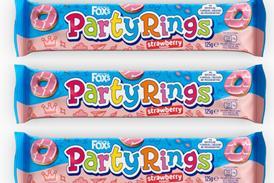
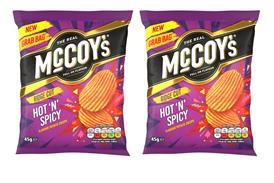
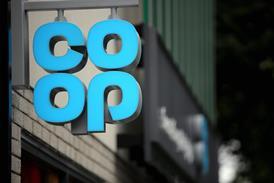
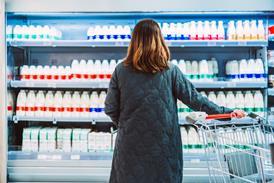
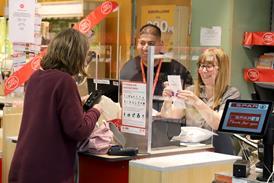

![WG-4003[58]](https://d2dyh47stel7w4.cloudfront.net/Pictures/274x183/4/5/1/353451_wg400358_6083.jpg)




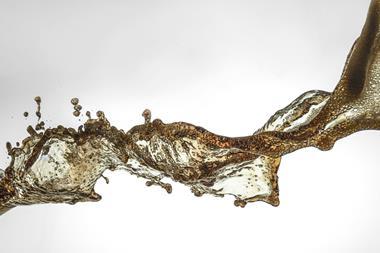

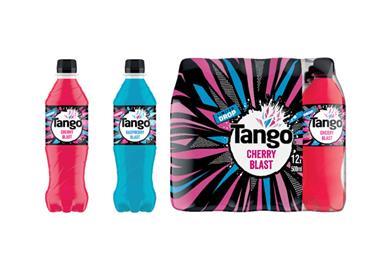
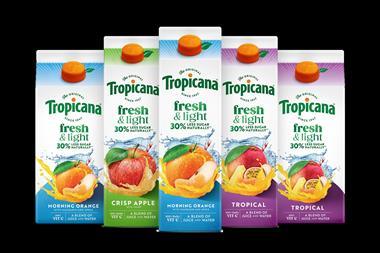
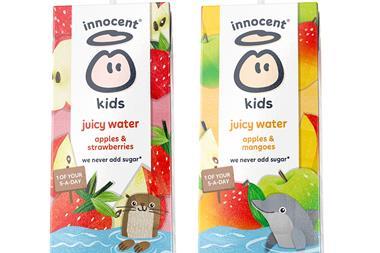
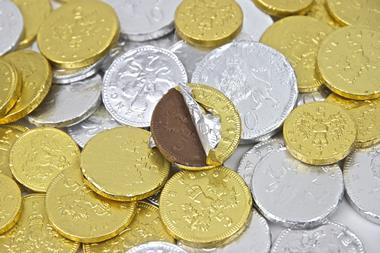
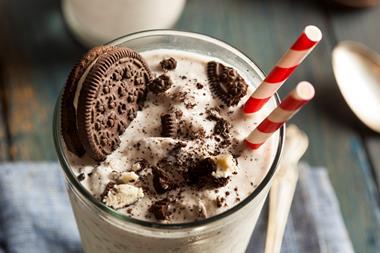

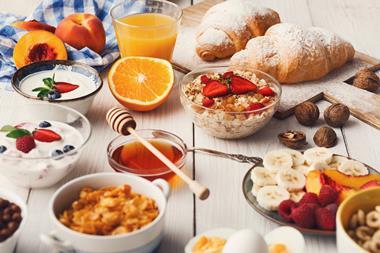
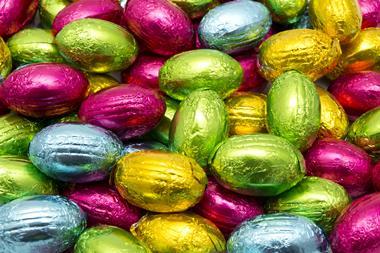
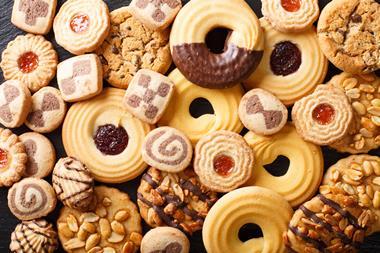
No comments yet